The other day, just for kicks, I was trying to make a mental list of all the directors, 30’s-60’s, whose work I admire. Guru Dutt. Akira Kurosawa. Hrishikesh Mukherjee. Bimal Roy. Raj Khosla (usually). And, of course, the inimitable Alfred Hitchcock. That led to another realisation: I haven’t seen, or reviewed, a Hitchcock film in months. Therefore this, an unusual Hitchcock in that it’s not a suspense film. Instead, it’s a ‘journey’ film, set in a lifeboat bobbing about on the high seas during World War II.
Somewhere in the Atlantic, a freighter on its way from New York to London has been torpedoed by a U-boat, which in turn has been blasted to the bottom of the sea by the freighter as it’s gone down. Not much is left of the freighter or its passengers: the camera pans over various odds and ends floating in the water—a magazine cover, a tennis racquet, medical supplies, fruit, a suitcase, wooden spoons… and finally comes to rest on the one intact lifeboat that’s afloat. In it, sitting serenely self-assured, poised and with not a hair out of place is the writer Constance ‘Connie’ Porter (Tallulah Bankhead).
Connie is busy recording, through a video camera, everything that’s going on about her: even the approach of another survivor, clad in a life jacket and covered with oil, who staggers into the boat. This is Kovac (John Hodiak), who used to work in the engine room of the erstwhile freighter.
Kovac’s barely got his bearings and begun to give Connie a tongue-lashing for being so inhuman as to photograph the horror around, when they come upon more survivors. There is, to begin with, the freighter’s radio man, ‘Sparks’ (Hume Cronyn), whom Kovac hauls in, dripping with water and oil.
Next to come on board are two people who’ve got a badly injured man with them. The very wealthy Mr Rittenhouse (Henry Hull), who owns God knows how many factories and is well aware of his consequence—is one of them, and along with him is a young nurse called Alice (Mary Anderson). Between them, they’ve managed to save Gus (William Bendix), also a member of the crew. Gus’s leg has been hit by shrapnel and is bleeding all over the place. Once they’re in the boat, Alice tries to staunch the flow and remove whatever shrapnel she can, but it’s not much use.
In the meantime, they’ve taken on more survivors: the steward, Joe (Canada Lee) has managed to rescue a young woman and her baby. The woman, Mrs Higley (Heather Angel) had been widowed in the bombing of Bristol and has ever since been shell-shocked. She’d been sent to the USA and was headed back to England—but the sinking of the ship has worsened her condition: Joe reports that when he found her, she was trying to drown her baby.
Sadly, Mrs Higley appears to have been successful: Alice tries to resuscitate the infant, but it’s gone.
Finally, there’s one last addition to the company. Beefy hands grip the edge of the boat, and when the others pull and heave, a wet, greasy and exhausted man (Walter Slezak) tumbles into the boat. He sits up, blinks and finally gasps out his gratitude: “Danke schön.”
A survivor from the sunk U-boat.
And so the stage is set and the players are in place. They’re an odd bunch of people—not exactly strangers, except for the German—but not all of them very close friends. Gus, Kovac, Sparks and Joe, by virtue of working on the freighter, know each other well enough. Joe knows Rittenhouse and Connie, and they are friends with each other. Poor Mrs Higley, traumatised by that long-ago shelling, drifts between searching frantically for her baby and lunging murderously at the German, accusing him of having killed it.
One night, huddled in Connie’s beautiful mink coat, Mrs Higley quietly slips over the side, leaving behind only a sad memory of herself.
This is just the start of their worries. A squall contaminates much of their water supply and washes away most of their food. Kovac and Rittenhouse nearly come to blows over who’s ‘commanding’ the lifeboat—Rittenhouse, used to ordering people about, seems to think it natural that he should be in charge.
Even worse, Alice, checking on Gus, discovers that his leg is swiftly getting worse. She isn’t experienced enough to be able to diagnose it, but she thinks it’s gangrene. Surprisingly, the German confirms that. Through Connie, who acts as interpreter, he admits that he’s a surgeon and suggests that he be allowed to amputate Gus’s leg—it’s the only way to save his life. Gus is adamant that he won’t have it taken off; if his leg goes, how will he dance with his girl Rosie back home? Rosie lives to dance; if he can’t dance with her, she’ll leave him.
It takes Connie and the others some talking to convince Gus that Rosie will still love him, no matter what, and that there is no alternative.
So, in a heaving boat, with a bottle of brandy as anaesthesia, Gus’s leg comes off. And the nameless German, while not endearing himself with the rest of them, at least manages to earn their confidence. So much so that when he says they should sail in a particular direction to get to Bermuda—the nearest safe harbour—they do.
And they sail on, slowly getting to know each other, the enforced proximity bringing some people closer…
…while creating suspicion and antagonism between others. For some, this becomes a journey of hope, of possibly reclaiming a life that’s not gone quite the way it should; for others, like the unfortunate Gus, it deteriorates into a traumatic and miserable experience. What will it finally turn out to be? For some, if not all? How will it end?
Lifeboat isn’t just a story (actually, the story angle isn’t the mainstay of the film anyway); it’s a very absorbing study of human behaviour. Between them, John Steinbeck (the writer) and Hitchcock (the director, and that too of similar ‘enclosed setting’ films like Rear Window and Rope) manage to make the confined space of a lifeboat the backdrop for a display of human emotions that range from jealousy to suspicion, pure and simple human kindness to deceit; friendship and affection to love and lust—and just about everything in between. We discover that the sophisticated Connie has something in common with the arrogant and devil-may-care Kovac, his chest tattooed with the initials of five women:
We find that Joe, gentle and sweet Joe, who plays the flute so beautifully, was once a very accomplished pickpocket—and hasn’t lost the knack. We learn why Alice was on her way to London, and why the German asks Connie the time, even though he apparently has a watch of his own…
What I liked about this film:
The way it’s made. The screenplay and the direction are taut, switching deftly from one situation to another, from one developing relationship to another, from one interesting glimpse into a person’s life to another. A very effective way of ensuring that it never gets boring.
Tallulah Bankhead. I’d heard lots about this iconic actress, but had never seen her onscreen. Now I can understand how she got to be iconic. She’s brilliant as the hard-headed, sassy and successful Connie (who addresses everybody as “darling”) and who bemoans the loss of her typewriter, her camera and her mink coat, yet is very gentle when it comes to consoling Mrs Higley or lending a ear to Alice—and also surprisingly sensuous when it comes to Kovac.
What I didn’t like:
The last few minutes. Yes, there is an interesting and unsettling study in mob dynamics here, but the very last bit smacks of wartime propaganda. Back in 1944, this would have been pretty normal (and even expected), but no, I didn’t like that.
If you’re a Hitchcock fan, do watch Lifeboat. Even if you aren’t a Hitchcock fan, do watch this for a lesson on character development in cinema and literature: it’s superb.




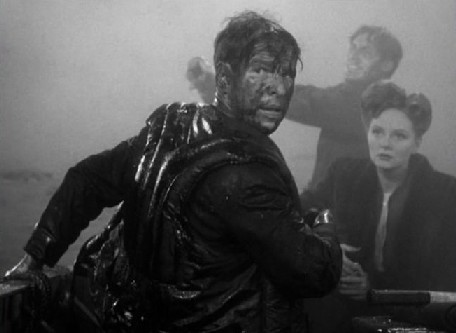
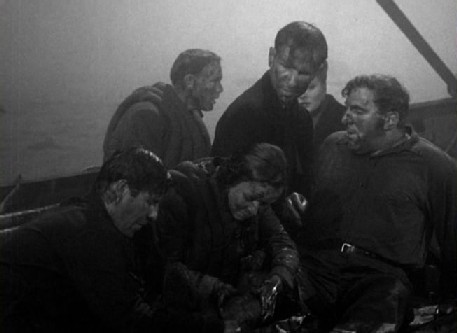

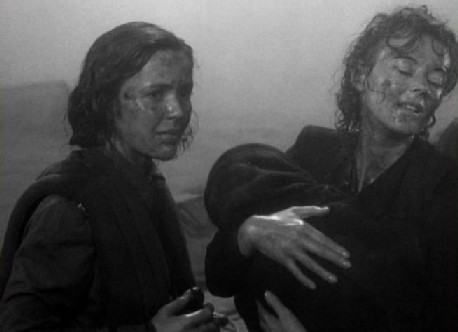
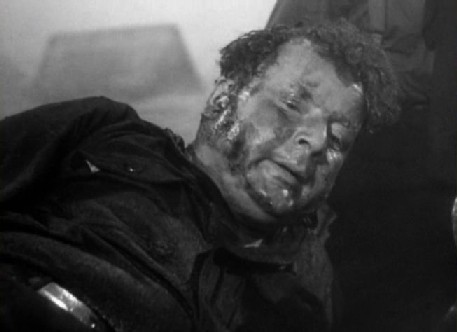
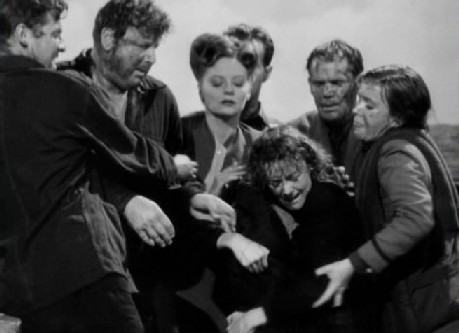
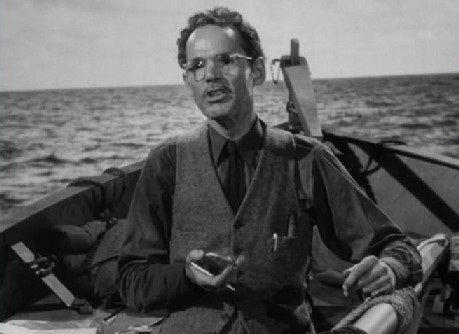




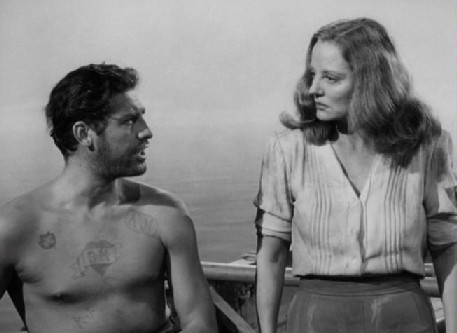

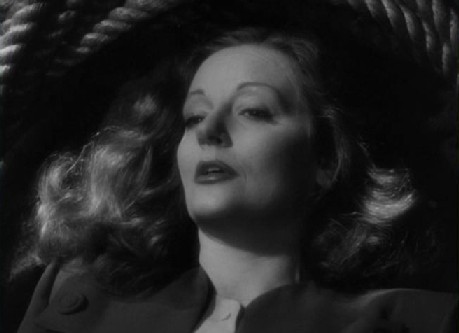
Never heard of this one before. It certainly sounds like a must-watch! It wouldnt be a Hitchcock film if there wasnt a twist in the end. I bet the German doctor is trying to steer them in the direction of German territory and his ‘watch’ is a compass! :-)
LikeLike
I’ve always wanted tosee this movie, since I heard of the plot and that was nearly 20 years back. O that tells me to pursue my desires with more perseverance! ;-)
*Goes off to read the review!*
LikeLike
The reviews makes me want to see the movie RIGHT NOW!!!!!!!!!!!!!!!!!!
It also reminds of this wonderful book by Yann Martel ‘Life of Pi’. A must read!
LikeLike
bollyviewer: You are too perceptive! Yes, right on both counts. ;-) The end, by the way, doesn’t really have a twist – there’s just a little development that’s not actually a twist but just a somewhat unsavoury turn of events…
harvey: I’ve heard of Life of Pi but have never read it! I’ve just received a book discount voucher that’s valid till March 31, so was planning to buy some books – will look out for it!
LikeLike
I saw his Psycho the other day and as much as i enjoyed it the background music was wasy too distracting, it feels like an overhyped classic to me. Another movie of his i watched was a fabulous mystery murder with gay undertones is The Rope, you might like it, its on you tube in 12 parts [http://www.youtube.com/watch?v=ABK_F2noItw]
LikeLike
Yes, Rope is fabulous too, isn’t it? I mentioned it in this review of Lifeboat as being another of those ‘limited space’ films that Hitchcock made – everything happens within just a couple of rooms, or inside a very enclosed space.
I also really, really like Rear Window and Spellbound, both superb Hitchcock mysteries – and of course some of his early films made in the UK, like The Thirty-Nine Steps, The Lady Vanishes and Rebecca. Brilliant!
But I do tend to agree with you re: Psycho. Also Birds. Both have been hyped so much and made out to be such classics that I ended up expecting too much of them and was eventually disappointed. There are other Hitchcock films that I like much more.
LikeLike
Wow, so many films and so little time!
How do I manage a Pardesi, Rope and Lifeboat in one week!
(If I don’t do it now, I’m bound to forget it soon!)
LikeLike
Do, do read Life of Pi! It starts in Pondi!
I’m sure you ‘ll love it.
But I’m not going to tell a thing about what you have to watch out for, otherwise it will spoil the flow! I envy every person who has not read the book because they are going to enjoy reading it for the first time!!!!!!!!!!
LikeLike
I can completely empathise with that ‘if I don’t do it now, I’m bound to forget it soon’ statement – now I’ve got to the point where I have a notepad file on which I type in every film and every book reliable friends recommend, so that I don’t forget! (Life of Pi has just gone into that file, so I remember).
LikeLike
‘Life of Pi has just gone into that file, so I remember’
*grinning from ear to ear*
LikeLike
Lifeboat is a must-see for any cinema fan, whether you like Hitchcock or not.
Agree re: the ending, but it being made in 1944 explains that.
Amazing how you forget that the whole things takes place in 6m2 or thereabouts.
LikeLike
Saw Rope!
A fabulous movie!
Thank you bollywooddeewana!
LikeLike
bawa: Yes, I’d have thought any film made in just that tiny bit of space would have got boring after a bit – but it’s truly amazing how Steinbeck and Hitchcock pull it off so perfectly.
harvey: Yay! One down, two to go. Have you seen Rear Window, by the way?
LikeLike
so many hitchcock movies are so good: rear window: fantastic….cherry on cake: grace kelly in that gorgeous party dress
LikeLike
This one? It makes me swoon – so beautiful!
LikeLike
Rear Window! Wow, have seen it at least two or three times! One of my fav films!
LikeLike
It definitely sounds like a must-watch! Reading your review made me feel like I was reading a novel.
I too have a notepad saved on my desktop with all must-watch movies and must-read books. And the list is already overflowing. High time I buy them now.
LikeLike
This is a wonderful film, although I remember it being hard to watch in places (painful I mean, not badly done)…your blog is making my list of old favorite films that I need to find on dvd SO LONG!
LikeLike
ps Marnie is another of Hitchcock’s somewhat overlooked films, with a very young Sean Connery and Tippi Hedren (of The Birds). Interesting psychological study as well.
LikeLike
harvey: Me too! I’ve seen Rear Window a couple of times too, and am game for more. :-)
sunheriyaadein: Do watch this one – it’s a very good film, especially in the way it gradually draws out the character of each individual. Thanks to the setting, the ‘action’ is rather limited, but the dialogues and the interactions are gripping.
memsaab: Oh, yes! I really like Marnie too: and Sean Connery looks so absolutely fabulous in that – somehow I never did like him as Bond (come to think of it, I’m not much of a Bond fan anyway), but he was delectable in Marnie.
Another good but little-known Hitchcock film is the 70’s Frenzy – unusual (it is, I believe, the only Hitchcock film to have nudity), and with superb suspense.
LikeLike
Yep: thats the one!
Hitchcock movies that I recommend absolutely, in no particular order:
Shadow of a Doubt, Suspicion, Dial M for Murder, … everything he made, really.
Unusual must-see: I Confess with Montgomery Clift.
Save the best for the last: two “comedies”
Mr & Mrs Smith
and the utterly delicious
The Trouble with Harry.
Off: topic: watched 2 absolute classics over the past 2 days: City Lights: Chaplin and Duck Soup (Marx Brothers): Freedonia never fails to cheer me up :)
LikeLike
Yes! I adore The Trouble with Harry too, and Mr and Mrs Smith is so different from the typical Hitchcock! Am putting I Confess and Shadow of a Doubt – neither of which I’ve seen yet – on my notepad file. ;-)
Oh, lucky you to have seen City Lights and Duck Soup! I haven’t seen Duck Soup and saw City Lights years ago, so don’t remember it.
The last film I saw (I just finished watching it, in fits and starts), is the 1954 Suhagan starring Geeta Bali, Sulochana Latkar and Shyam Kumar. imdb said it also starred Mala Sinha and Guru Dutt, which turns out to be totally untrue – neither is there (unless T Series has been doing some really hectic editing). Such an infuriating film that I won’t even be reviewing it – it’s all about how a woman is good only if she stays within the confines of her home and lives and dies with her husband. What’s worse, the print and sound were horrid. This is one film for which Greta’s ‘red mist’ appellation applies completely!
LikeLike
Sounds utterly dreadful and I wouldn’t want to meet myself after watching something like that. Just watch some Marx brothers. Any film that has lines like this
“Don’t look now, but there’s one man too many in this room, and I think it’s you.”
“Go, and never darken my towels again! ”
is worth it, just for that!
Films to watch piling up…and want to re-watch old favourites too..time :(
City lights is very very good, and the music, using a 1917 Spanish composition “La violetera ” is truly beautiful. This then led us to watch several different versions of the song, which then led to some opera watching and finally to a wonderful Korean soprano Sumi Jo, doing one of my favourites, (despite the very weird camera making for a strange body)
That is why I never manage to sleep when I should.
LikeLike
My goodness, bawa… I’ve just finished watching the Sumi Jo link, and I’m still more than a little shaken up. And covered with gooseflesh. Simply awe-inspiring. I’m listening to her rendition of Ave Maria right now – superb. Thank you for introducing me to Sumi Jo! I’d never heard of her, but she’s gone straight towards the top of my list of favourite singers ever. She’s fabulous.
I have seen a couple of Marx Brothers films, actually – A Night at the Opera and A Day at the Races. Hilarious, both!
LikeLike
Its such a pleasure to share things with others who appreciate as well! She is out of this world, isn’t she?
She came once to Bilbao many years ago, and I missed that, lets see if I am lucky to hear her live once.
Those are good Marx brothers films; with the famous ship cabin scene.
LikeLike
Since I wrote that, I’ve already been raving to everybody – husband, sister, brother-in-law, niece, etc – about how superb Sumi Jo is. I later listened to her Blue Danube too, which was lovely – the first time I’d heard the tune sung, actually.
LikeLike